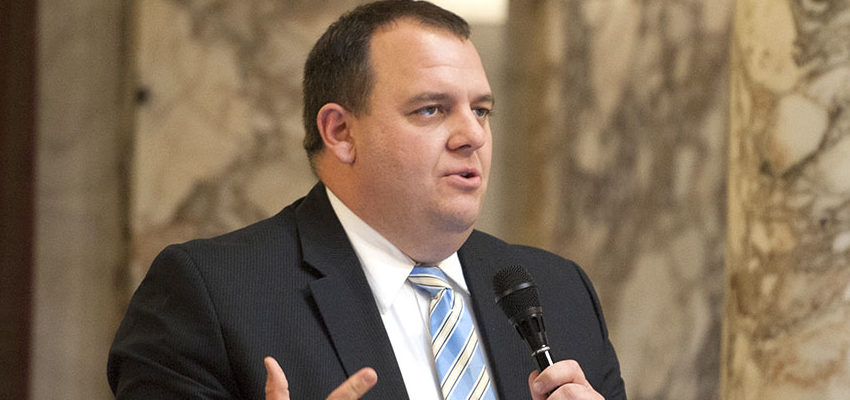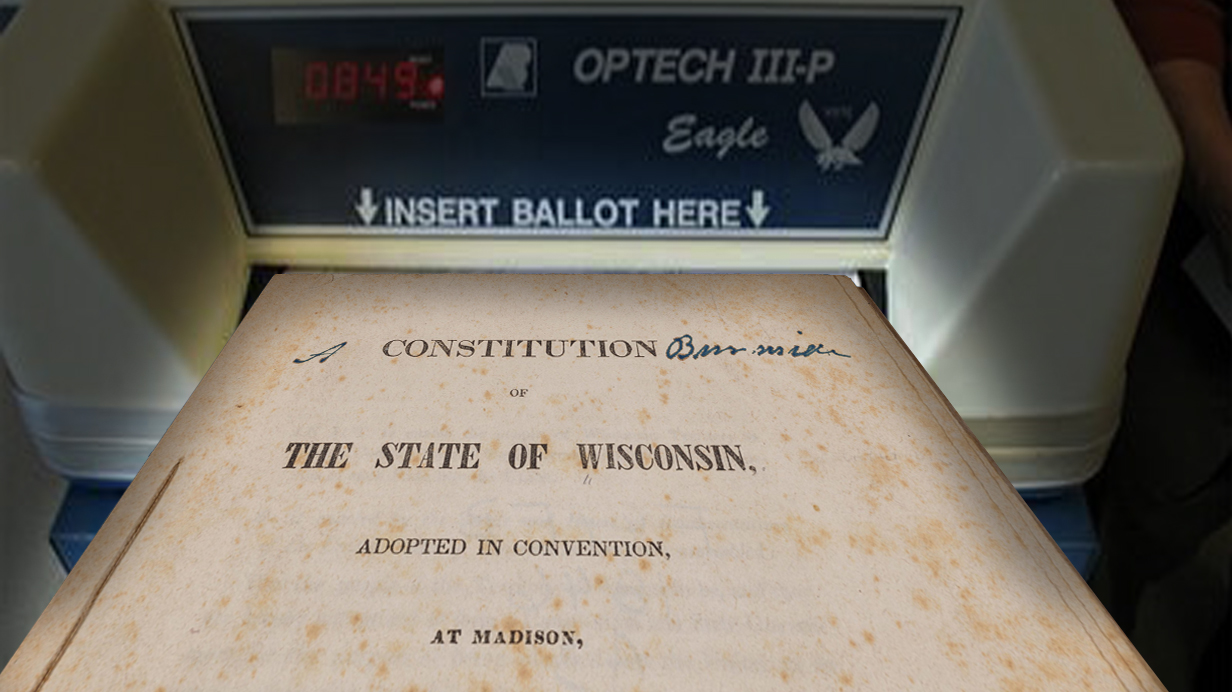 [bctt tweet=”Some worry that the broad scope of the amendment language could open the door to real transparency problems, leaving lawmakers and taxpayers in the dark about information they should be entitled to. #wiright #wipolitics ” username=”MacIverWisc”]
[bctt tweet=”Some worry that the broad scope of the amendment language could open the door to real transparency problems, leaving lawmakers and taxpayers in the dark about information they should be entitled to. #wiright #wipolitics ” username=”MacIverWisc”]
MacIver News Service | June 27, 2019
By M.D. Kittle
MADISON, Wis. —An amendment on an amendment in the “11th hour” of this week’s legislative floor session sounded alarm bells about a possible end-around to Wisconsin’s open records laws.
The amendment language blocks lawmakers and the public from seeing certain records in the DOT bidding process. It’s attached to a bill on a critical area of transportation reform — single-bid contracts.
State Sen. Dave Craig on Wednesday asked his Senate colleagues to hold up on a vote for the twice-amended Assembly Bill 285, one of a few Department of Transportation reform measures passed this week.
“I asked that the bill be pulled and sent to the Senate Committee on Organization because we saw this amendment develop at the 11th hour and we had conflicting legal opinions as to what the amendment did,” the Big Bend Republican said.
The amendment language blocks lawmakers and the public from seeing certain records in the DOT bidding process. It’s attached to a bill on a critical area of transportation reform — single-bid contracts. The original measure would require the DOT to rebid projects that receive but one bid, if a bid exceeds the department’s estimated cost of work by 10 percent or more. A fallback provision would allow the DOT to avoid the requirement in cases of a threat to public safety.
Assembly Amendment 1, on top of an earlier change, appears to be broadly written, and that’s where the worry comes in.
“All records and information the department submits to the joint committee on finance under par. (c), and all records and information derived from those records or information, shall remain confidential and is [sic] exempt from disclosure” under Wisconsin’s open records law.
The amendment goes on to warn that, “Any violation of the confidentiality requirement under this paragraph by a state employee is grounds for dismissal.”
State Rep. Joe Sanfelippo (R-New Berlin), who offered the amendment, said he understands the confusion and why Craig wanted to pull the reform bill from the Senate floor.
But Sanfelippo said officials at the Legislative Reference Bureau, which drafted the amendment, have assured him that the language “doesn’t materially change anything in the open records law.”
“Anything covered by the open records law would remain open after this change,” said Sanfelippo, who, with Craig and other conservatives, authored a package of 15 DOT reform bills.
“I believe the drafter when he says he’s not doing anything to change existing law, but I have no problem erring on the side of caution,” Sanfelippo said.
Craig and Sanfelippo said the amendment did raise questions among Senate attorneys.
Under state law, the Department of Transportation does not have to disclose its project estimates. Doing so, Sanfelippo said, would more than likely drive up project costs for taxpayers. That’s the information that, under the amendment, apparently would still be confidential in the periodic single-bid contract reports that would go to the Joint Finance Committee.
Sanfelippo likened the situation to a homeowner who tells a roofing contractor that he needs a new roof and he’s got a budget of $10,000.
“The cost of that roof repair is going to magically be $10,000 when the contractor could have done it for $7,000,” he said.
But some worry that the broad scope of the amendment language could open the door to real transparency problems, leaving lawmakers and taxpayers in the dark about information they should be entitled to.
“We wanted to make sure we got the language right, with the intent of making sure that the public and the Legislature understand what’s going on with the bidding process,” Craig said.
“We wanted to make sure we got the language right, with the intent of making sure that the public and the Legislature understand what’s going on with the bidding process,” Craig said.
The amendment was crafted on Monday, hours before the Assembly took the floor for its budget debate the following day. Sanfelippo said the DOT had sought the change to protect project estimate figures and the process the agency uses to arrive at its numbers.
Republican leadership in 2015 eventually removed a measure that would have severely limited access to legislative records. It was one of several measures shoved through a fast-moving, last-minute “#999” motion filled with giveaways to special interests and lawmakers. GOP leaders took a lot of public heat for their proposed open records restrictions.
Sanfelippo said the hope is to clarify the amendment language and bring the bill back to the Senate.
The Republican-controlled Legislature has passed a few of the 15 reform measures, including a bill that would require the DOT to keep an inventory of design-build projects ready to rollout. It’s a watered-down version of the original proposal, but, like the reform measure on single-bid contracts, it’s a step in the right direction, reformers say.
Rather than hiring a construction company after a road is designed, this active building method would bring in the construction company during the design phase.The theory behind design-build is that the company can apply its practical experience to find efficiencies and cost savings that engineers might otherwise miss — saving taxpayers money and keeping projects moving.
Sanfelippo said the reform work is far from over, that the first round of bills are “the end of the beginning” of the changes that need to be made at an agency that, according to a 2017 audit, has cost taxpayers billions in cost overruns and mismanagement.
Craig, too, said there’s a long reform road ahead.
“Until we get a clean piece of legislation that regulates what the agency can do on single-bids and on things like putting an inspector general inside the agency, I’m not going to be content,” the senator said.
All the work on the first round of reforms will come to naught if Democratic Gov. Tony Evers vetoes them. Sanfelippo said he’s hopeful lawmakers got enough buy-in from the Department of Transportation to save the reform bills from Evers’ veto plan.




